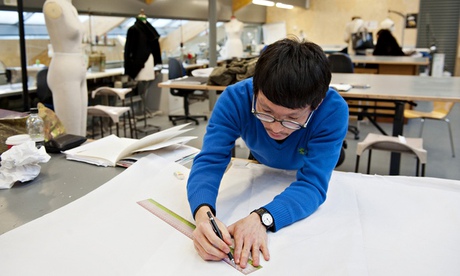Our recent live chat provided some wisdom for fashion students, faculty members and consumers alike looking to embed sustainability into education and design practises. Here are the top five things we learned.
1. Learning how to tell the sustainability story behind an item or collection is key
If a consumer can engage and empathise with the path that an item took - from conceptual design to pattern making to crafting - the more they’ll be intrigued. Weaving together a narrative about a sustainably designed and conceived garment is part of the task of becoming a designer. Since adding an ‘editorial’ section to their website, where the back story behind their products and designers is explored, rêve en vert has found more people are engaged on broader issues of sustainability.
Ditty agreed building narratives is especially important in dealing with stereotypes about sustainable fashion. “The story is so very important in engaging consumers in sustainability and inspiring behaviour change and busting those perceptions that sustainable fashion is ugly, shapeless hemp potato bag t-shirts.”
2. Major retailers need to collaborate with universities
Some schools, like Universidad de Bogotá Jorge Tadeo Lozano in Colombia make sure retailers and local fashion industry players are included in its fashion design programme. And retailers themselves, likerêve en vert, are keen to work with students, but as Natasha Tucker, co-owner of an online company that sells sustainable lines, believes, we need more mainstream companies need to engage. More initiatives like University of the Arts London's FIREup programme, which unites academia with industry experts in order to share knowledge and build commercially viable businesses, could help.
Renee Cuocu, education for sustainability projects manager at the Centre for Sustainable Fashion at London College of Fashion, says: “Retailers are a really important link between the designer and customer, and it would be great to see more opportunities for students to engage with retailers with a stronger focus on sustainability.”
3. Fashion students need to take a systems-wide and multidisciplinary approach
Anna Fitzpatrick, who has worked on sustainable fashion projects at the Centre for Sustainable Fashion, felt it was important students were taught about labour and social issues in the wider supply chain. Fiona Dieffenbacher, BFA director, Fashion Design, at Parsons agreed:
“We need to take a holistic view and teach students to think about their place in this system: to critique it and hopefully contribute to changing it.”
A multidisciplinary approach was emphasised as well, with Carolina Obregón referencing Universidad de Bogotá Jorge Tadeo Lozano where she is associate professor and programme coordinator for the design and fashion management bachelors programme. This programme assesses “…the vulnerability of the industry by engaging in research with a multidisciplinary approach, addressing how a designer is faced with economic, environmental and social challenges.”
Designers operating in an increasingly globalised world will find that taking a systems-wide and holistic approach will ensure they understand how to manage the processes and workstreams throughout their supply chains.
4. Sustainability is being included in curriculums but could be further integrated
An increasing number of schools are incorporating sustainability into their courses from the ground up, like Northumbria University and Pratt Institute in New York City. A recent graduate commented: “I have just graduated from Northumbria University in fashion design and marketing and they fully support and encourage a sustainable concept. The aim is to think of a concept for the future that will encourage a change in people’s perceptions and change the face of sustainable fashion.”
Others, such as Parsons, The New School for Design in New York City, identify sustainability as a core value of the institution and have for several years, hiring the first assistant professor of fashion and sustainability in 2009. Sarah Ditty, editor-in-chief of Ethical Fashion Forum's SOURCE Intelligence highlighted some of those schools working to incorporate sustainability into their curricula, however, wasn’t prematurely optimistic. “I think on the whole, [sustainability] is still unfortunately an afterthought in the majority of schools, especially outside the UK,” she said.
5. Future designers will need to be on top of new innovations and sustainability trends
Two trends in particular emerged that aspiring designers should keep abreast of: upcycling and textile innovation. Finding ways to use up surplus materials will become increasingly valued and necessary, as resources like cotton become more scarce. And successful designers will need to follow the progress of innovation in material science, like 3D printing and new synthetic-natural hybrids.
“Technology is going to be a powerful force!” said Ditty.
The sustainable fashion hub is funded by H&M. All content is editorially independent except for pieces labelled advertisement feature. Find out more here.

